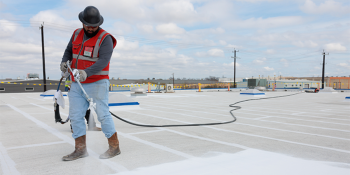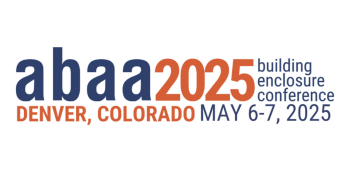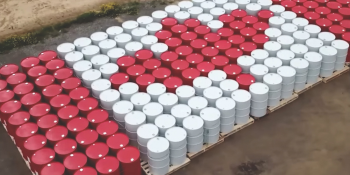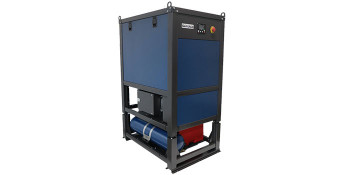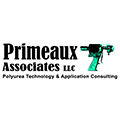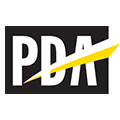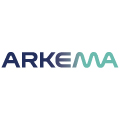Q&A Forums
soytherm Post New Topic | Post Reply
| Author | Comments |
|---|---|
|
travis fails
Posted: Apr 02, 2009 02:17 PM
|
soytherm
Mason can you explain to me what the what the IAMPO-ES is, and does it mean the same as the E 119 test?Also is there other foam companys that have a foam that does not require a barrier in attic or crawl space assemblies? Thank You in advanced. |
|
mason
Posted: Apr 02, 2009 07:05 PM
|
I am not familiar with IAMPO ES. I am familiar with ICC ES acceptance criteria. The acceptance criteris describes how a specific material or assembly is to be installed to comply with building codes. They would use fire tests to determine whether the foam needs a specific coating or covering, how thick the foam can be installed and other specific requirements. ASTM E 119 may be referenced in an acceptance criteria. |
|
mason
Posted: Apr 02, 2009 07:11 PM
|
IAMPO is the plumbing and mechanical association. I do not believe their evaluation services would be recognized by the ICC code bodies for thermal and ignition barriers over foam plastics. They do have a plumbing and mechanical code. |
|
Michael Fusco
Posted: Apr 03, 2009 08:53 AM
|
Actually Mason, you missed this one. In order to understand the answer, one must first understand who everyone is. ICC is a code promulgating body. They make code and these codes are adopted by cities, counties, states or whatever enforcement body there is. The enforcement body has ABSOLUTE autrhority to interpret the code they adopt. (READ: Code official is just under GOD!) ICC-ES is the ICC evaluation Service. They are a seperate body from the ICC (Although owned and operated and manned by the same physical people, there is a definate seperation of power.) They draw their authority to interpret code from ANSI (the standard setting folks for standard setting folks.) IAPMO - you correctly identified them, but they are authorized by ANSI to do two things....testing for plumbing and mechanical stuff, and, you guessed it, interpretation. The questions as to acceptance is strictly on a code official by code official basis. IAPMO uses the same AC-377 as ICC-ES does to issue the ER...so you would guess wrong. Finally, the answer as to who can spray uncovered, or without ignition barrier....I believe there are now three or four manufacturers who have successfully passed the testing and have been issued either ER's from IAPMO or ESR's from ICC-ES, or both |
|
travis fails
Posted: Apr 03, 2009 12:14 PM
|
can you are anyone tell me which manufactures have passed one or both of these test? |
|
mason
Posted: Apr 03, 2009 07:53 PM
|
Thanks for the clarification. But, ICC ES is the authoritative body that most code officials use for interpreting the ICC codes. If you have an ICC evaluation report that is usually a slam dunk while IAMPO report would not neccesarily be accepted. As for acceptance. The rules are changing, a new procedure for testing ignition barriers has been adopted so many of the approvals currently used by manufacturers will have be retested to continue their evaluaton reports. Check the date of the evaluation report and when it was approved particularly the Legacy reports. The Legacy reports are good only to the date of the latest evaluation. for example, if the Legacy report is dated May 2003, the report is acceptable only for the codes before that date. Whereas an ICC evalauation report is good for the current code. Please ask your manufacturer to provide their latest evaluation report and be aware that most folks who used the SWRI attic test procedure to obtain their approvals will be retesting in the next year to continue their approvals. |
|
Michael Fusco
Posted: Apr 04, 2009 02:21 PM
|
Mason, If you are going to hold yourself as an authority, then you have to know when to say "I don't know". ICC-es reports are NOT a slam dunk. Many a code official has said "I don't care, I'm not comfortable with....". Especially in our industry. IAPMO has enjoyed almost as much acceptance as the ICC-es has. If you would have researched, you would have learned that both IAPMO reports refered to by the original questioner are less than a year old., and are not legacy reports. The ICC report is NOT good for the current code unless it says so. First section of the report lists the exact codes it is good for. All reports are "subject to re-examination" by ICC-es and IAPMO. Being an ICC member I have queried the ICC as to exactly what that means and received two different answers. First answer says that it is subject, but is not required to be re-examined. If it is on the website it is still good. Second answer said it is no good after the re-examination date. In either event, it is still up to the LOCAL CODE OFFICIAL to determine if he will accept it. Guys, irregardless of what Mason or anyone else tells you...there is no slam dunk, there is no automatics...it's far easier to ask for permission than forgiveness. IAPMO legal department has discussed with many a code official the "acceptance" of their reports. Bottom line is that if they accept ICC-ES they will probably accept IAPMO at least as far as they alow the ICC-ES to go.....if they accept neither, that is their perrogative. LA county and Scottsdale AZ, as well as most of California accept IAPMO as a slam dunk, but not ICC-ES.....interesting how that happens. There is currently much talk about AC-377 and wether or not that will be changed....keep in touch with your manufacturer and READ the ESR's. They do not all say the same thing! |
|
mason
Posted: Apr 05, 2009 09:15 AM
|
Urethaneman. I think we have gone as far as we can in this discussion. It has been my personal experience that an ICC evaluation report has been accepted without question by the code offficials I have known. I am also an ICC member and will submit this specific question to ICC staff and publish the answer. Look for it in a week or so. Again thanks for the input, as you can see, even folks like us in the "know" may disagree on the interpretation of codes and evaluation reports. The information I received about the new standard test procedures for determining ignition barriers comes from Michael Beaton, Staff of the ICC ES and the SWRI task group consisting of representatives from the various foam plastic industry including SPFA, the polystyrene foam groups. polyiso foam group and fire research labs such as Southwest Research labs & Intertech, plus fire code consultants, Jesse Beitel and Bill Koffel. To make the point again, in order for a coating to have blanket approval as a thermal barrier over foam, it must pass the E 119 test. If it passes a room corner test such as UL 1715, NFPA 286, FM 4880, etc it will have approvals for that specific foam and coating but not across the board for any foam with that coating. But as you point out, it is up to the local building code official to make their determination on how to interpret the codes. |
|
mason
Posted: Apr 05, 2009 09:49 AM
|
I submitted the following question to ICC Staff I have been asked if a IAMPO Evaluation Report describing the thermal barrier testing and requirements for a sprayfoam and coating assembly would be more or less likely to be accepted by a building code official over an ICC Evaluation Report. What is ICCs official position? Is an IAMPO Evaluation Report considered an equivalent to an ICC Evaluation Report? I will publish the response when it arrives. |





